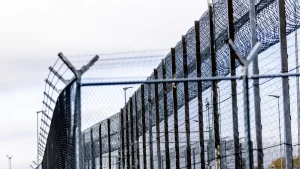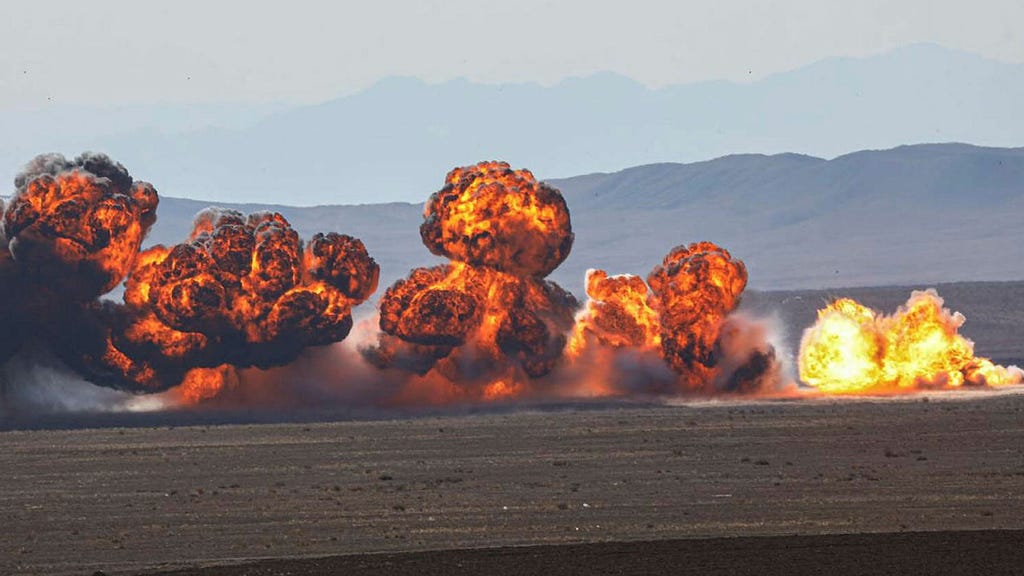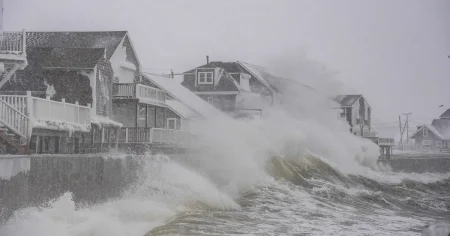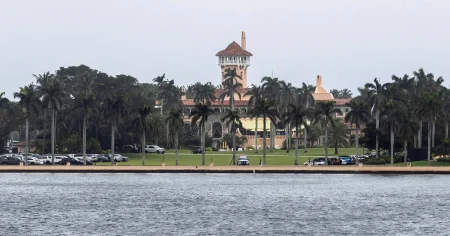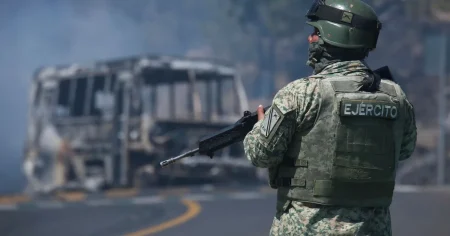The Financial Times and Wall Street Journal have reported on a significant shipment of sodium perchlorate, a key ingredient in solid rocket fuel, allegedly en route from China to Iran. Two Iranian-flagged vessels, the Golbon and Jairan, are believed to be carrying over 1,000 tons of this chemical, enough to fuel approximately 260 of Iran’s medium-range ballistic missiles. This development raises concerns about Iran’s expanding missile capabilities and China’s role in facilitating this advancement despite existing sanctions and international pressure. The shipment’s implications for regional stability and the ongoing nuclear negotiations with Iran are substantial.
Sodium perchlorate is used to produce ammonium perchlorate, the primary oxidizer in solid rocket propellant. Iran possesses a considerable arsenal of ballistic missiles, estimated by the US to be over 3,000, representing one of the largest stockpiles in the Middle East. Following Israeli attacks on Iranian facilities last year, Iran’s domestic production of sodium perchlorate has reportedly been hampered, forcing them to seek external sources. This reliance on imports underscores the effectiveness of targeted sanctions in disrupting Iran’s military supply chains. However, the alleged Chinese shipment reveals potential vulnerabilities in the international effort to control the flow of sensitive materials to Iran.
China has a history of supplying sodium perchlorate to Iran, dating back to the 1990s. While this trade has been intermittent, recent years have seen increased scrutiny and sanctions imposed by the US Treasury Department on Iranian companies and officials involved in such transactions. Despite these measures, the Golbon, according to ship tracking data, was loaded in Xiushan Island near Ningbo, China, and departed shortly thereafter. The Jairan is expected to follow suit in early February, carrying another substantial consignment of sodium perchlorate in 22 containers. Both vessels are owned by a major Iranian shipping company, which itself is under EU sanctions. This reveals the complexity of enforcing sanctions and the challenges in preventing determined actors from circumventing international restrictions.
This alleged shipment highlights the delicate geopolitical balance between China, Iran, and the West. China’s role as a potential supplier of strategic materials to Iran, a country under international scrutiny for its nuclear program and ballistic missile development, adds another layer of complexity to the already strained relations. The West has frequently criticized China for supporting both Russia and Iran with crucial goods, some of which have strategic military applications. However, the question of whether the Chinese government was aware of these specific shipments remains unanswered. The Chinese embassy in Washington has denied any knowledge of the transfers, creating ambiguity about the level of official Chinese involvement.
The potential transfer of such a large quantity of sodium perchlorate to Iran carries significant implications for regional security and the ongoing efforts to curb Iran’s ballistic missile program. The shipment could significantly bolster Iran’s missile capabilities, potentially destabilizing the region and escalating tensions with its neighbors and the international community. This incident also underscores the challenges of enforcing sanctions and preventing the proliferation of sensitive materials, particularly when dealing with state-sponsored actors with established networks and covert procurement methods.
The lack of transparency surrounding the shipments and the denial of knowledge by the Chinese embassy raise concerns about the effectiveness of existing non-proliferation efforts. Further investigation is needed to determine the extent of China’s involvement and the implications of this potential transfer for international security. The incident also highlights the need for greater international cooperation and stricter enforcement mechanisms to prevent the flow of dual-use materials to countries of concern, ultimately contributing to a more secure and stable global environment. The international community must address this issue with urgency and consider implementing stronger measures to prevent similar incidents in the future.


